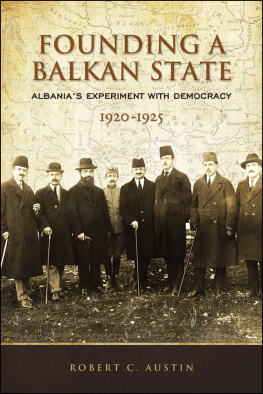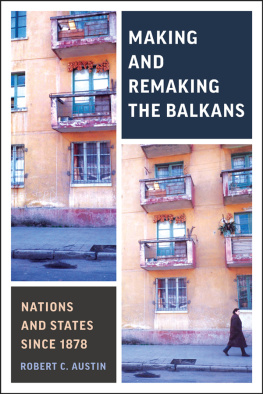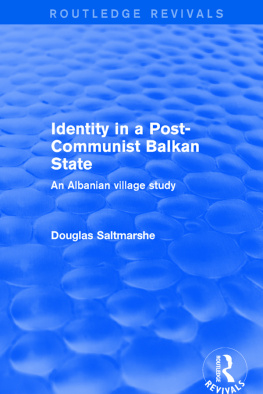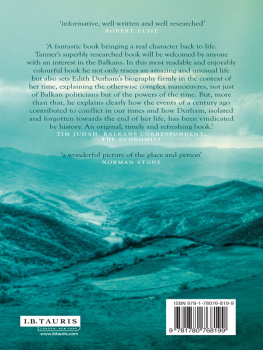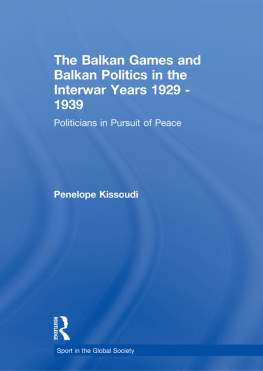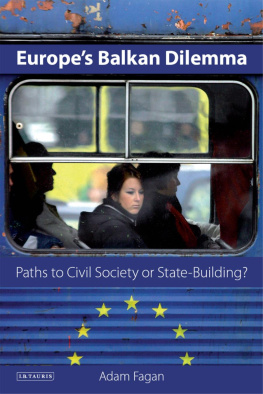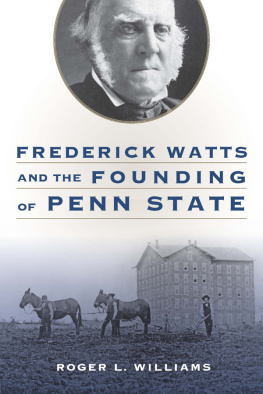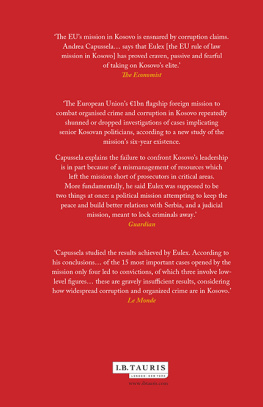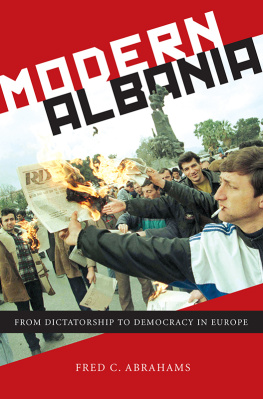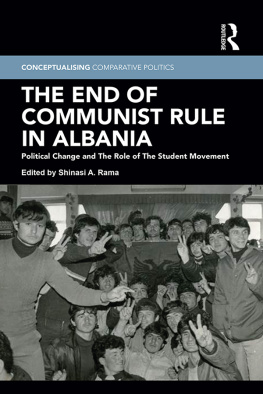FOUNDING A BALKAN STATE
Albanias Experiment with Democracy, 19201925
Founding a Balkan State
Albanias Experiment with Democracy, 19201925
ROBERT C. AUSTIN
University of Toronto Press 2012
Toronto Buffalo London
www.utppublishing.com
Printed in Canada
ISBN 978-1-4426-4435-9
Printed on acid-free, 100% post-consumer recycled paper with vegetable-based inks.
Library and Archives Canada Cataloguing in Publication
Austin, Robert C. (Robert Clegg), 1964
Founding a Balkan state : Albanias experiment with democracy,
19201925/Robert C. Austin.
Includes bibliographical references and index.
ISBN 978-1-4426-4435-9
1. Albania Politics and government 19121944. 2. Albania Foreign relations 19121944. 3. Albania History 19121944. 4. Noli, Fan
Stylian, 18821965. 5. Democracy Albania History. I. Title.
DR973.A98 2012 949.6502 C2012-903009-0
University of Toronto Press acknowledges the financial assistance
to its publishing program of the Canada Council for the Arts
and the Ontario Arts Council.
University of Toronto Press acknowledges the financial support of the
Government of Canada through the Canada Book Fund
for its publishing activities.
Contents
Preface
This book deals with the process of nation and state building in Albania between 1920 and 1925. It was in this period that the fundamental goals and directions of the new state were most hotly contested and Albania engaged in a political debate that proved to be the exception in the twentieth century, with some telling implications for Albania in the future. After the Congress of Lushnj in 1920, which established the basis for a national government, Albania embarked on a path that for some leaders promised prosperity, a break with the Ottoman past, and modernization through democracy. Despite lacking many of the internal preconditions that would ensure success, as well as facing some extraordinary external obstacles, a small coterie of political leaders set out on the road toward democracy with vigour and optimism. However, by 1925, the forces that offered something new were in a retreat, and political pluralism collapsed. Albania slid into dictatorship, as well as into economic and political dependence, under Ahmed Zogu, first as president in 1925, then as self-proclaimed king in 1928. Because of the intensity of the debate, this period is unique as the zenith in Albanias preSecond World War political life, and as such it amounts to a missed opportunity in need of further scholarly inquiry.
The main spokesman of a republican, modernized, and democratized Albania was Bishop Fan S. Noli, who arrived in Albania in 1920 from the United States determined to uproot the legacy of five hundred years of Ottoman rule. Emerging as the leading spokesman of a new Albania, Noli is the focal point of this book. Why Fan Noli and his brief rule as prime minister in 1924? Although by no means apparent at the time, Nolis temporary victory represented a lost opportunity to alter the central tenets of Albanias domestic and foreign policies as he undertook to radically transform Albanian society on all levels. Within the wider postParis Peace Conference Balkans, Albania faced the very same problems that confronted the entire region. All the Balkan states struggled with key questions of political and social reform after the First World War, and all slipped into various forms of dictatorship or authoritarianism. The Albanian manifestation of this trend sheds important light on why reform failed not only in Albania but elsewhere in the Balkans. Equally important, this study also helps us to better understand the very nature of democratic transitions in both historical and contemporary contexts.
During his six months as prime minister, Noli confronted the main obstacles to a complete break with the past and the creation of a Western-style parliamentary government. The principal goals of this study are to uncover the causes of Albanias internal chaos in the years following the war, the roots of Nolis revolution, the evolution of his program, and the reasons for its subsequent collapse. Readers will note that Ahmed Zogu, a key spokesman of the ruling class, also plays a fundamental role in this book. Noli and Zogu emerged as symbols for the main political currents at the time, although Zogu did his best to masquerade as a reformer since, for him, reform was something you threatened but never implemented. Noli and his friends in the United States came to stand for reform and a European Albania, while Zogu chose to defend the conservative order and ruled by classic divide-and-rule tactics, taking constant advantage of the incompleteness of the Albanian national awakening.
In addition to exploring the domestic side of Albanias struggle for a new political order, foreign policy is also vital to understanding Albania. For the most part, Albanias twentieth-century history has been shaped by outside powers. The period between 1920 and 1925 is one of the few instances when Albania was not totally dependent on one Great Power or another for survival but was instead looking for foreign support. As a result, while domestic problems were severe, problems outside the state were far more intense and often served to shape the domestic agenda. Political leaders still needed to define Albanias place in the Balkans and the wider European political context. Borders were in dispute, minorities needed to be defended, and Albania, by far the poorest and weakest of the Balkan states, needed financial and other support if it was to make a serious start at state and nation building.
If a new political and social order was to be implemented, someone else was going to have to pay for it. Political instability and the failure of Noli were not solely the result of internal contradictions and the hopeless legacy of Ottoman rule, which left hardly any infrastructure. Albanias neighbours, Greece and Yugoslavia, played pivotal roles in shaping the domestic path of Albania. Equally important was the role of the Great Powers, the international community in contemporary parlance, especially Great Britain and the United States, which were in a position to aid Noli and the reformers. The League of Nations, which for Noli was a potential saviour, also had the opportunity to shape events. Since Albania subsequently emerged as an almost silly Ruritania or even Slaka with an exotic self-proclaimed king dependent on Mussolinis Italy, Nolis somewhat independent or even renegade foreign policy is instructive as to the wider problems faced by small states.
I have tried to rely as much as possible on what was then new access to primary sources in Albania and the United States. To that I have added the published collections from Great Britain and the League of Nations. Western historiography on the period is limited, owing to the legacy of Albanias extraordinary isolation during the communist period (194491), and there is no single monograph dealing with the early 1920s. Western literature tended to focus on Zog, both as president and later king. Bernd J. Fischers King Zog and the Struggle for Stability in Albania remains one of the best books on the period, along with Jason Tomess more recent King Zog: Self Made Monarch of Albania. Both devote little space to the period prior to Zogus final seizure of power in late 1924. Albanian communist-era historiography is extremely weak. The Noli interregnum and the period that preceded it served only communist political purposes. There was never a critical approach. Secondary literature was often repetitive and politicized, viewing 1924 as a bourgeois democratic revolution and suggesting Noli was almost without flaws. For Albanias hard-line Marxist-Stalinists, June 1924 was February 1917 in Tsarist Russia.
Next page
